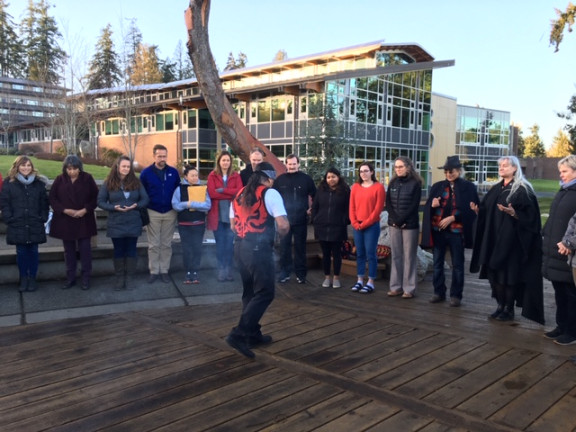50p

Assessments and Curriculum 2019
This past week was one marked by the new Ministry of Education assessments in numeracy for all students in Grades 10-12. The intention behind these tests is primarily to help the Province gauge the impact and effectiveness of the new curriculum which is now in effect at all grade levels. Though the tests are graduation requirements and results do appear on final transcripts there is no “pass mark” as such. Neither are they grade specific as only one exam needs to be taken in the high school years. Far from being a pure mathematics test, the numeracy assessment is a measure of math related skills such as estimation, the ability to interpret graphical information, analyze statistics, reason and communicate in a quantitative scenario: skills often connected to real world problems. Administration of the tests involved some very detailed logistics which helped everything to run smoothly for students on the day.
An example exam can be found here should you be interested in seeing what this test is like.
A literacy test forms the other piece of the assessment regime and is likely to replace the English 12 provincial exam which was also, coincidentally, written by our grads this week. By contrast, this exam is worth 40% of the English 12 mark and is a key indicator of a student’s readiness to cope with the critical reading and expository writing demanded by most university programs. As such, our English Department is determined to maintain this standard as an important component and benchmark in our BCS curriculum.
The new BC curriculum also advocates for a more intentional and extensive inclusion of First Nations principles of learning and perspectives. To that end, teachers met, on the day students travelled back to school this term, for professional development to enhance our understanding of First Nations cultures, history and worldviews. Chief Randy Chipps of Esquimalt, his wife Laura and elder Fred Roland of Cowichan tribes helped us appreciate the role of ancestry and storytelling while University of Victoria Professor Dr Shauneen Pete led us through the issues around reconciliation and land treaties. Our own alumna Fiona Hammersley Chambers, ‘88, who also lectures at UViC, gave a talk on ethnobotany and the importance of biological diversity in our food plants, framing a metaphor for our approach to cultural diversity and the differences we bring to our country through our diverse heritage. An overview of the program for the day can be found here. Faculty agreed that our speakers were informative and that their workshops conveyed more than a simple smattering of facts, giving a deeper insight than perhaps expected into the heart of some of these issues. We will be following this up with more engagement with our First Nations colleagues and some experiences of culture such as a traditional sweat lodge.
David McCarthy, Director of Learning